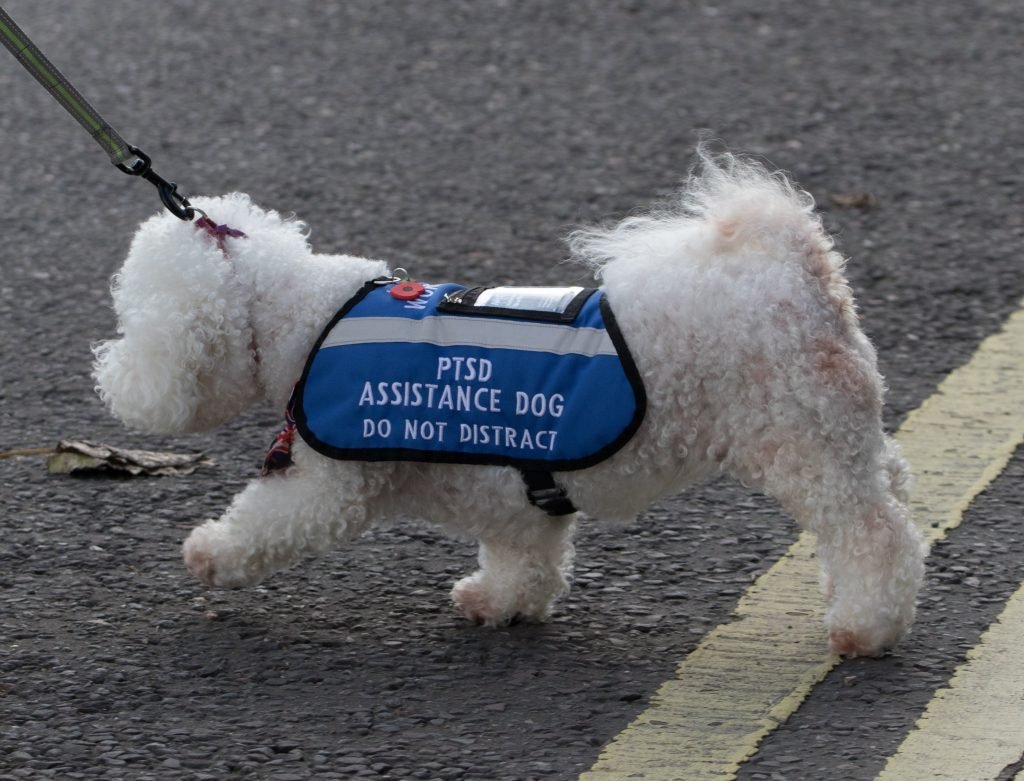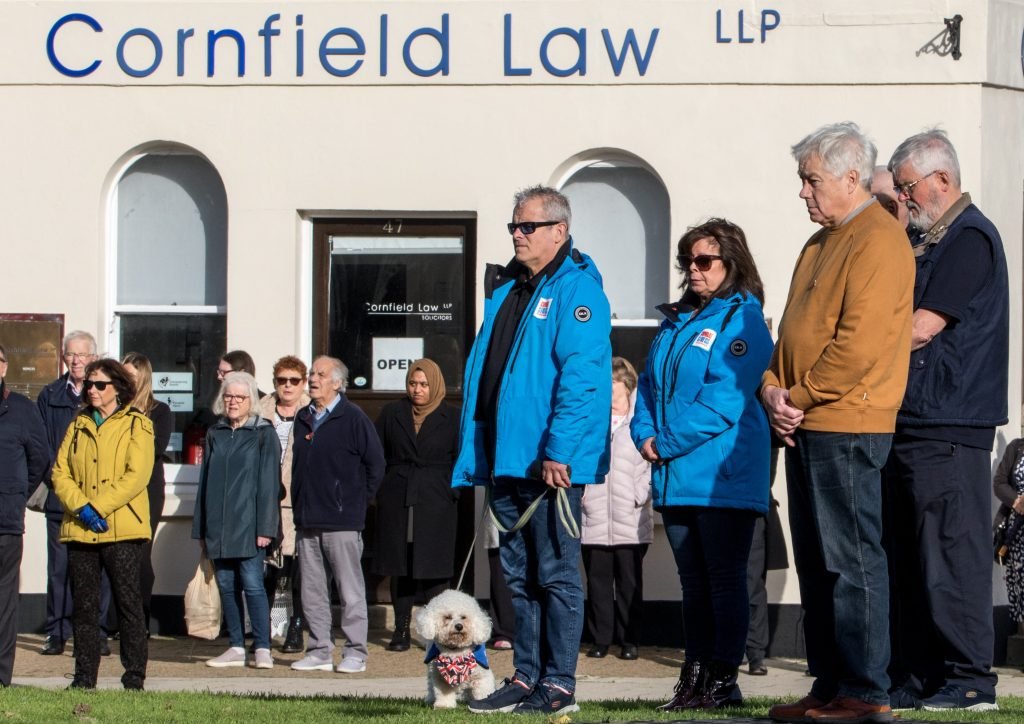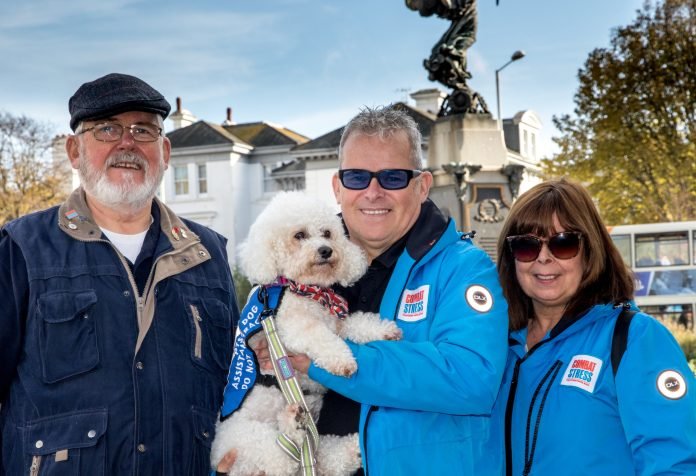“Friday at the local war memorial in Eastbourne, East Sussex I met Barry Coase, a former soldier who himself was diagnosed with PTSD. With him was Bella a PTSD assistance dog named in 2019 as Therapy dog of the year.
Much of Barry and Bella’s time is now spent visiting those who benefit from meeting with Bella, including former military personnel receiving care from the PTSD Charity Combat Stress.
Chatting with Barry reminded me of a young man who we as a family knew and it prompted me to write this little piece about the huge demands we place on our military.
On the 11th hour of the 11th day of the 11th month for two short minutes we as a nation stop, a simple respectful sign of the commemoration of those we know as the glorious dead. It is something we collectively do, a response inspired and ignited over 100 years ago by the unimaginable horrors and loss of life of The First World War.
But those who gather at Cenotaphs and memorials across the country do not do so only to remember the dead, but also to offer thanks to those who fought and survived in every conflict our forces have engaged in since. Those survivors don their medals and emblems of service, veterans of these modern conflicts and the sadly decreasing number of WW2 survivors, proudly march through cities and towns of our country with their military brothers and sisters.
But when the ceremonies are over there is another story, one which must remain in the national consciousness beyond this one day of reflection. Many of those veterans fight daily battles on their own, carrying emotional scars and wounds many of us cannot hope to understand.


In unenlightened times, during the very war that inspired the placing of a Cenotaph in the heart of the Nation, words like “cowardice” and “lack of moral fibre” were used to describe those for whom the horrors of that war caused mental health injuries as devastating and enduring as the physical wounds they and others suffered. It was not until 2006 that those young men “shot at dawn” for cowardice and whose only crime was to be broken, were pardoned.
A century on the impact of emotional trauma on our military is not lessened, and the journey to understand what we now know to be Post Traumatic Stress Disorder (PTSD) has not been an easy one. During that journey, far too many lives have been lost unnecessarily.
Conflicts in recent times have a complexity beyond that which was seen in the early part and middle of the last century, the overwhelming public support of and for WW1 and WW2, despite the unimaginable cost, gave way in the 21st Century to criticism and condemnation. British troops found themselves engaged in regions such as Iraq and Afghanistan, where questions were widely raised about the morality and rationality of such conflicts. The reality of these modern wars flooded our TV screens night after night and for young men and women already witnessing the physical and emotional demands of those theatres of war the potential for doubt added to the sometimes-unbearable pressure of their experiences.
And yet despite all we have learnt still we see our veterans sitting on our streets, apparently abandoned by a system that so proudly cheers them for a few moments once a year or boasts of our military’s deserved respect around the globe. Beyond that little is done to ensure that those who served this nation do not become forgotten heroes.
It would, with some honourable exceptions seem that those with responsibility for these men and women have for the time being failed in their duty! Perhaps a word they could learn so much about from those they have abandoned.
Since 2001 it is feared that over 2000 of our veterans have taken their own lives, and in 2020 it is believed 21 serving military personnel took their lives, the highest number in 15 years.
Perhaps a study commissioned by the Government to look at military suicide, due to be published next year; and looking back over the last 10 years, will raise the profile of this appalling issue, but whilst these victims, who have given up so much for the nation are not at the forefront of our government’s minds then it must be feared that more of them may be lost to us.
There are a number of charities out there, often run by former members of the military who themselves have suffered the impact of their service, but these charities are struggling to help the ever-increasing numbers of those needing help now and it is time our leaders stepped up to the plate.”
This opinion piece was written by – Alan Fraser For Ryan





















